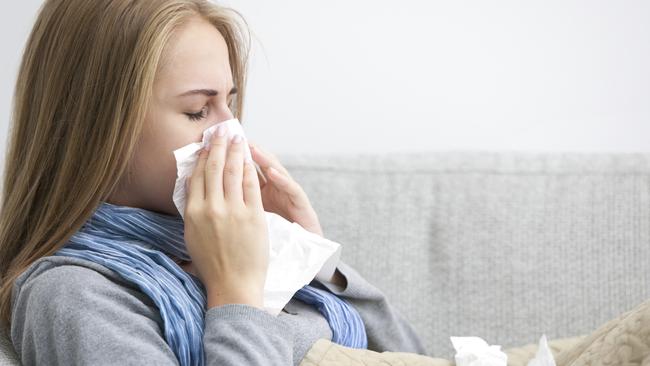Coronavirus: Aussie workers soldier on through crisis, as sick days plummet by 37pc
It’s the biggest health crisis in a century, but COVID-19 has led to a dramatic drop in sick leave.

It’s the biggest health crisis in a century, but COVID-19 has led to a dramatic drop in sick leave, suggesting some people working from home are opting for “doona days” rather than accessing leave.
Australian Bureau of Statistics figures show up to 37 per cent fewer workers called in sick over recent months.
The figures detail people who reported working fewer hours because of injury, illness or sick leave. They show the drop in absenteeism began in April when 30 per cent fewer workers logged off compared with last year, and continued through May (37 per cent); June (32 per cent); July (21 per cent) and August (19 per cent).
The trend was backed by figures showing that unscheduled absences — in effect, sick days — dropped by 25 per cent in the federal public service in the three months from April to June, compared to 2019.
The Australian Public Service Commission revealed on Friday unscheduled absences dropped from 11.4 to 11.2 days per employee over the past year, driven by the April to June drop from 3.1 to 2.3 days per employee.
Some of the decline is due to fewer people in jobs, as well as the fact many workers spent weeks at home on forced annual leave. And the almost complete absence of flu in the winter months meant Australians who avoided COVID-19 were healthier than ever.
But human resources experts and consultants believe the decline also reflects people working at home deciding to work through their illness, pulling up the doona but answering their emails and not accessing sick leave.
There is also evidence of a “keep calm and carry on” attitude among workers, with people required to go to physical workspaces continuing to report for duty at higher than usual levels.
Paul Dundon, whose company Direct Health Solutions manages sick leave for companies in the blue-collar sector, said there had been a big drop in sick leave at the start of the emergency.
“In times of crisis, people turn up,” he says. “It’s very engaging for people. If you have a hurricane, everyone shows up.”





To join the conversation, please log in. Don't have an account? Register
Join the conversation, you are commenting as Logout